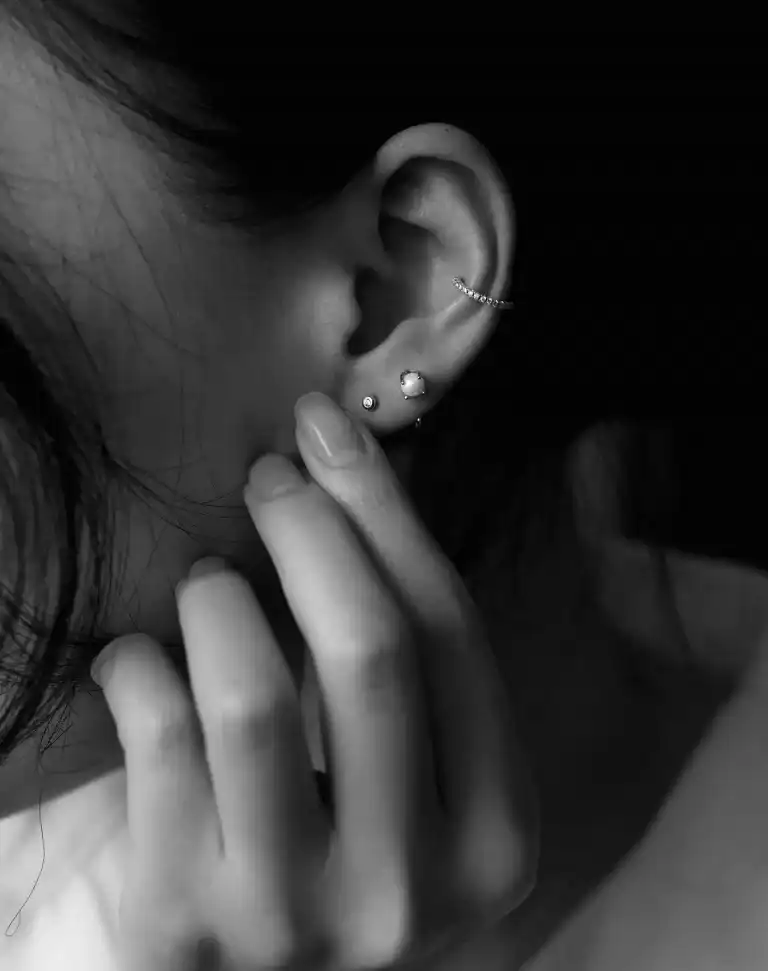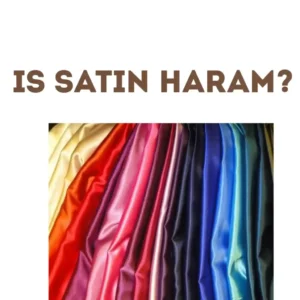Is Ear Piercing Halal in Islam? Muslim Guide on Ear Piercings

According to most Islamic scholars, it is considered halal (permissible) for women to get ear piercings and wear earrings.
This permissibility is based on a long tradition of women adorning themselves in Islam. However, scholars unanimously agree that it is not halal for men to pierce their ears, as it is considered an imitation of women, which is explicitly forbidden in Islam.
To determine whether ear piercing is halal in Islam, two primary factors must be considered:
- Whether the act of piercing the ear itself is halal.
- The purpose of the piercing, typically to wear jewelry, and its corresponding permissibility.
In the following sections, we will explore the Islamic rulings on these two aspects and delve into the opinions of scholars on the matter.
Does Islam Permit Women to Wear Jewelry?
Jewelry and adornments have been a common feature of women’s attire throughout history, and Islam recognizes the natural desire for women to beautify themselves. Culturally, it is far more common for women to wear jewelry than for men, and this is reflected in Islamic teachings.
The Quran explicitly acknowledges the permissibility of women wearing jewelry. In Surah Al-Zukhruf, Allah says:
“Do they attribute to Him those who are brought up in fineries and are not commanding in disputes?”
(Surah Al-Zukhruf, 43:18)
This verse highlights that wearing jewelry is a natural part of a woman’s upbringing and adornment. Additionally, the Prophet Muhammad (PBUH) further elaborated on this matter in a hadith narrated by Abu Musa Ashari:
“Wearing of silken clothes and ornaments of gold is unlawful for the men of my Ummah but lawful for the women.”
(Narrated by Abu Musa Ashari)
From this, we understand that wearing jewelry, including earrings, is clearly permissible for women in Islam. This ruling encompasses all forms of jewelry, such as rings, necklaces, bracelets, and earrings.
READ ALSO: Is New Year Haram or Halal In Islam?
The Importance of Modesty and Moderation in Adornment
While wearing jewelry is allowed, it is crucial to note that Islamic teachings emphasize modesty and moderation.
The adornments worn should not be extravagant or ostentatious, and they should not imitate men’s styles.
Islam encourages women to express their beauty in ways that align with their cultural customs but within the boundaries of modesty.
Islamic scholars agree that women are permitted to wear all types of gold and silver jewelry, provided it is worn in a modest and appropriate manner.
However, this permissibility comes with some conditions, such as avoiding excessive displays of wealth and ensuring that the jewelry is not imitative of men’s styles or un-Islamic traditions.
What Do Scholars Say About Ear Piercings?
Regarding the permissibility of ear piercings specifically, scholars differ in their opinions. The Hanafi and Hanbali schools of thought consider ear piercing permissible for women. According to Ibn Qudama, a prominent Hanbali scholar:
“It is permissible for women to wear all kinds of gold and silver adornments as well as jewelry according to what is common in their customs, such as bracelets, anklets, earrings, rings, and what they wear on their faces, necks, hands, legs, ears, and the like. However, it is prohibited for women to wear what is not familiar to them to wear, such as the belt and the like of men’s adornment.”
This statement makes it clear that ear piercing is allowed as part of women’s traditional adornment in societies where it is customary.
On the other hand, the Shaafi school of thought takes a different stance. They view ear piercing as a form of body modification, which they argue is forbidden in Islam. This is because Islam prohibits self-harm or unnecessary alterations to one’s body.
The Shaafi scholars argue that since piercing causes some level of harm to the body, it should be avoided, especially if it serves no essential purpose.
Hadiths Supporting Ear Piercing for Women
Despite the differences among scholars, there is evidence from the time of the Prophet Muhammad (PBUH) that supports the permissibility of ear piercings for women.
In a well-known narration by Aisha (RA), the Prophet’s wife, she recounts an event in which Umm Zar mentioned that her ears were adorned with ornaments gifted by her husband. The Prophet Muhammad (PBUH) responded to Aisha by saying:
“I am to you as Abu Zar was to Umm Zar.”
(Narrated by Al-Bukhari, 4893, and Muslim, 2448)
This indicates that the Prophet approved of women wearing ear ornaments and even spoke positively about such adornments.
Additionally, other narrations mention the wives of the Prophet and the wives of his companions wearing earrings, further affirming the permissibility of this practice.
Piercing and Modesty in Islam
Islamic rulings also highlight the importance of observing modesty when getting piercings. A woman should not reveal her piercings to non-mahram men (those who are not immediate family members), as this goes against the principles of modesty in Islam.
Furthermore, it is recommended to seek a female professional when getting piercings, as uncovering the ‘awrah (intimate parts) to non-mahram men is prohibited.
In some regions, piercing other parts of the body, such as the nose, is also customary for women. In such cases, scholars permit these piercings as long as they conform to local customs, do not cause harm, and are not imitations of non-Islamic practices.
Is It Haram for Men to Pierce Their Ears?
Islamic scholars unanimously agree that it is haram (forbidden) for men to pierce their ears. This ruling is based on the hadith where the Prophet Muhammad (PBUH) cursed men who imitate women in their appearance. Ibn Abbas (RA) reported:
“The Prophet cursed men who make themselves look like women and women who make themselves look like men.”
(Narrated by Abu Dawood)
This ruling extends to earrings, which are considered a form of feminine adornment. Scholars have concluded from this hadith that ear piercings and wearing earrings are impermissible for men.
While men are allowed to wear certain adornments, such as silver rings, ear piercings fall outside the scope of permissible adornment for men.
Are Multiple Ear Piercings Permissible?
The matter of multiple ear piercings is less straightforward. While Islam does not explicitly prohibit women from getting more than one ear piercing, scholars advise caution.
According to Sheikh Kifah Mustapha, an Islamic scholar, all things are permissible unless explicitly forbidden in Islam.
The tradition of Umm Zar mentioned earlier indicates that having multiple earrings is permissible, as the Prophet did not object to Umm Zar’s multiple ear ornaments.
However, scholars advise moderation and discourage excessive piercings that could cause harm. For wellness reasons, it is recommended to avoid too many piercings, as wearing multiple earrings may pose health risks or cause unnecessary pain.
Conclusion
In conclusion, the permissibility of ear piercings in Islam largely depends on the gender and the cultural customs surrounding adornment.
For women, ear piercings and wearing earrings are considered halal, provided they are done modestly and in accordance with Islamic guidelines.
For men, however, ear piercings are unanimously considered haram due to their association with feminine adornment and imitation of women.
As with many issues in Islam, scholars offer different perspectives, but the overarching theme is the importance of maintaining modesty, avoiding harm, and adhering to Islamic principles in all aspects of life.






